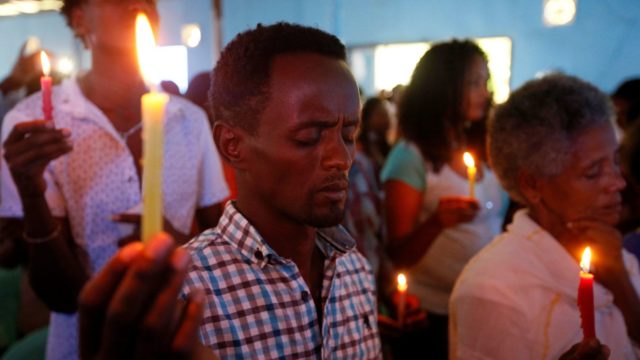By Abdi Latif
Dozens of people were killed in Ethiopia in clashes between two of the countries largest ethnic communities—pointing to the increasing violence and internal problems facing the Horn of Africa nation.
Officials confirmed that at least 61 people were killed between Thursday (Dec. 14) and Sunday (Dec. 17), heightening the tension between the Oromia and Somali regions. After Somalis killed 29 Oromos, the latter retaliated in a revenge attack and killed 32 Somalis.
The Oromia government spokesman Adisu Arega said in a Facebook post (in Amharic) that the clashes took place in the region’s Hawi Gudina and Daro Lebu districts. The attacks come just a week after 16 people were killed in Oromia, leading to protests and the blockage of social media sites.
The fresh clashes constitute a new political challenge for Ethiopia and have triggered a humanitarian crisis that has left tens of thousands of people displaced. The problem is also compounded by the fact that the Oromos and Somalis constitute over 40% of the country’s population, and live in the two largest regions by area size. Given the long border that the two share, the nasty spate of violence also highlights the tensions of ethnic federalism and how the two communities have competed for resources and land for decades.
But beyond the ethnic features, the recent clashes showcase the governance problems facing the ruling EPRDF party, and its promise to create a representative state that caters for all. The federal government, dominated by the Tigray ethnic group, was rocked by a wave of protests in 2015 and 2016 by the Oromo and Amhara groups who accused it of trying to grab their land and undermine the culture.
The demonstrations led to the killing of over 1,000 people destabilizing the country and threatening the ethno-nationalist, multicultural federation. Politicians dominating regional politics have also been duplicitous, turning a blind eye to injustices carried out by militias like the Liyu police, a paramilitary force that has been accused by rights groups of killing villagers.
The violence in Oromia is problematic for Ethiopia, a regional heavyweight that continues to market its impressive economic growth over the last two decades. If things don’t change in the near future, observers say Africa’s second most populous nation risks “unraveling” to the detriment of both the country and the region.

























